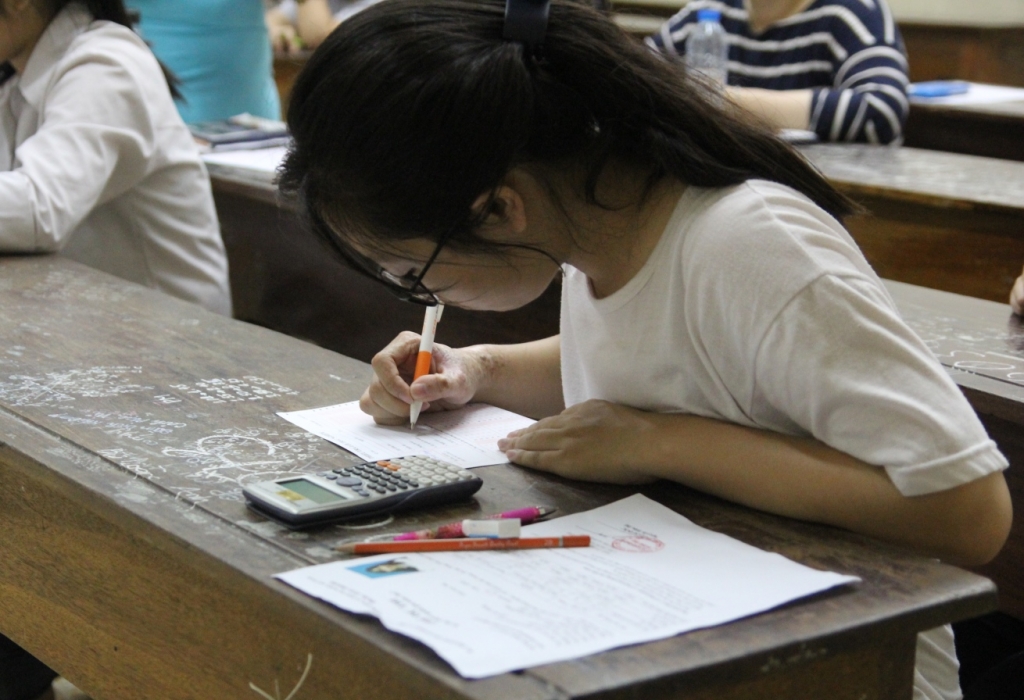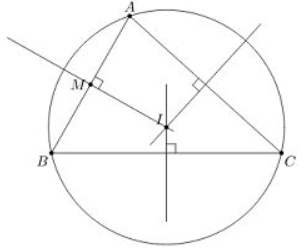Unit 4: Volunteer Work
A. Vocabulary:1. volunteer (v) [,vɔlən'tiə]: tình nguyện, xung phong
+ volunteer (n) : tình nguyện viên
+ voluntary (a) ['vɔləntri]: tình nguyện
+ voluntarily (adv) [vɔlənt(ə)rili] : 1 cách tình nguyện
Eg: John volunteered to organize a petition.
2. orphanage (n) ['ɔ:fənidʒ]: trại mồ côi
orphan (a) ['ɔ:fən] : mồ côi
Eg: She was brought up in an orphanage.
3. (the) aged (n) ['eidʒid]: người già
4. assistance (n) [ə'sistəns]: sự giúp đỡ
assist (v) : giúp đỡ
Eg: With some financial assistance, we’ll be able to start our own business.
5. fine (v) [fain]: phạt
Eg: They fined him $125 for driving through a red light.
6. behave (v) [bi'heiv]: cư xử
behavior (n) [bɪˈheɪ·vjər]: hành vi, sự cư xử
Eg: They behaved as if nothing had happened.
7. charity (n) ['t∫æriti]: tổ chức từ thiện, lòng từ thiện
Eg: Many charities sent money to help the victims of the famine.
8. comfort (n) ['kʌmfət]: sự an ủi
Eg: The letters that people wrote after his death gave her a lot of comfort.
9. co-operate (v) [kou'ɔpəreit]: hợp tác
co-operation (n) : sự hợp tác
Eg: The two groups agreed to co-operate with each other.
10. co-ordinate (v) [kou'ɔ:dineit]: phối hợp
Eg: Voluntary organizations will need to co-ordinate their efforts to help the homeless.
11. disadvantaged (a) [,disəd'vɑ:ntidʒ]: bất hạnh, thiệt thòi
Eg: A severely disadvantaged area.
12. donate (v) [dou'neit]: tặng, quyên góp
+ donation (n) [dou'nei∫n]: khoản tặng/đóng góp
+ donor (n) ['dounə]: người cho/tặng
Eg: To make a donation to charity.
13. fund-raising (a) [fʌnd 'reiziη]: gây quỹ
Eg: The best way of raising money to support charities is through fund-raising activities.
14. gratitude (n) ['grætitju:d]: lòng biết ơn
Eg: She sent them a present to express her gratitude.15. handicapped (a) ['hændikæpt]: tật nguyền
Eg: A visually handicapped child.
16. literacy (n) [lɪtərəsi]: sự biết viết, biết đọc
Eg: A campaign to promote adult literacy.
17. starving (a) [stɑː.vɪŋ]: chết đói, thiếu ăn
Eg: The cats were neglected and starving.
18. martyr (n) ['mɑ:tə]: liệt sỹ
Eg: The early Christian martyrs.
19. natural disaster (n) ['næt∫rəl di'zɑ:stə]: thiên tai
Eg: Students participate in helping the people who have suffered badly in wars or natural disasters.
20. overcome (v) [,ouvə'kʌm]: vượt qua
Eg: They give care and comfort to them and help them to overcome their difficulties.
21. raise money (v) [reiz 'mʌni]: quyên góp tiền
22. remote (a) [ri'mout]: xa xôi, hẻo lánh
Eg: a remote mountain village
23. mountainous (a) [ˈmɑʊn·tən·əs] : có núi, nhiều núi, to lớn
Eg: A mountainous region.24. retire (v) [ri'taiə]: về hưu
Eg: Since retiring from the company, she has done voluntary work for a charity.25. snatch up (v) ['snæt∫]: nắm lấy, túm, giật
Eg: They snatched up their coats and hats and ran outside.
26. suffer (v) ['sʌfə]: chịu đựng, đau khổ
Eg: I think he suffered a lot when his wife left him.
27. support (v) [sə'pɔ:t]: ủng hộ, hỗ trợ
Eg: The majority of people in the town strongly support the plans to build a new school.
28. war invalid (n) [wɔ: in'vælid]: thương binh
29. anti-drug campaign (n) [ˈæn.ti: drʌɡ kæmˈpeɪn] : chiến dịch chống ma túy
30. mow (v) [məʊ] : cắt, gặt (bằng liềm, hái)
Eg: You can't mow the grass if it's wet.
31. fire extinguisher (n) [ˈfaɪər ɪkˌstɪŋ.ɡwɪ.ʃər]: người dập tắt, làm tắt
32. organization of education development: Tổ chức phát triển Giáo dục
B. Phrases and Structures:
1. To take care of : chăm sóc
Eg: You should take care of your health or you will get sick.
2. Home for the aged: trại dưỡng lão
Eg: Lots of students spend many hours as volunteers in hospitals, orphanages or homes for the aged.
3. To give care and comfort to sb: chăm sóc, an ủi ai
Eg: The volunteers give care and comfort to disadvantaged children.
4. To set up = establish : thiết lập, thành lập
Eg: The English class was set up last year.
5. To take part in Ving: tham gia
Eg: We often take part in helping people in mountainous areas.
C. Grammar:
I. GERUND AND PRESENT PARTICIPLE (Danh động từ và Hiện tại phân từ)
1. Gerund: (Danh động từ)
Ø Hình thức: V-ing
Ø Chức năng:
§ Danh động từ làm chủ ngữ:
Eg1: Going to the zoo is very interesting.
Eg2: Collecting stamp is my hobby.
Cách dùng ở Eg1 tương đương với cấu trúc:
It’s adj + to V-inf
Eg: Going to the zoo is very interesting.
= It’s very interesting to go to the zoo.
§ Danh động từ làm tân ngữ của động từ:
Eg: She enjoys listening to music.
§ Danh động từ làm tân ngữ của giới từ:
Eg: He is interested in reading book§ Bổ ngữ cho chủ từ:
Eg: Her hobby is helping homeless people.
§ Ngữ đồng vị:
Eg: My hobby, playing table tennis, makes me feel happy.
§ Cấu tạo danh từ ghép:
gerund + noun
Eg: cooking-oil (dầu ăn), sleeping-pill (thuốc ngủ)
noun + gerund
Eg: child-bearing (việc sinh con)
2. Present participle: (Hiện tại phân từ)
Ø Hình thức: V-ing
Ø Chức năng:
§ Dùng trong các thì tiếp diễn: be + Present participle (V-ing)
Eg1: I’m watching TV.
Eg2: I have been learning English for 6 years.
§ Dùng như một tính từ (mang nghĩa chủ động và thường miêu tả vật)
Eg1: The film is interesting. (Đây là bộ phim thú vị.)
Eg2: It's an exciting journey. (Đây là một chuyến đi thú vị.)
§ Thay cho một mệnh đề:
* Mệnh đề độc lập trong câu ghép:· Hai sự kiện xảy ra đồng thời cùng một chủ từ thì một trong hai mệnh đề có thể được thay bằng hiện tại phân từ.
Eg: He washed his car and sang happily.
(Ông ấy đã rửa chiếc xe của mình và hát vui vẻ.)
—> Washing his car, he sang happily. (Rửa xe của mình, ông ấy hát vui vẻ.)
—> He washed his car, singing happily.
(Ông ấy đã rửa chiếc xe của mình, ca hát vui vẻ.)
· Hai sự kiện xảy ra kể tiếp nhau: sự kiện xảy ra trước được thay bằng hiện tại phân từ.
Eg: She put on her coat and went out. (Cô ấy mặc áo khoác vào và rồi ra ngoài.)
—> Putting on her coat, she went out. (Mặc áo khoác vào, cô ấy đi ra ngoài)
* Mệnh đề phụ trong câu:· Mệnh đề quan hệ: khi đại từ quan hệ làm chủ từ và mệnh đề quan hệ là mệnh đề chủ động thì được thay bằng hiện tại phân từ.
e.g: The girl who wears white dress is my best friend.
(Cô gái mặc váy trắng là người bạn tốt nhất của tôi)
->The girl wearing white dress is my best friend.
· Mệnh đề trạng ngữ chỉ thời gian:
Eg: Since he left school, he has worked in a restaurant.
(Kể từ khi ông rời trường học, ông đã làm việc trong nhà hàng.)
—> Leaving school, he has worked in a restaurant.
(Rời trường học, ông đi làm việc trong nhà hàng.)· Mệnh đề trạng ngữ chỉ lý do: hai mệnh đề phải cùng chủ từ
Eg: Because he drove carelessly, he had an accident.
(Bởi vì anh ta lái xe bất cẩn, anh ta đã bị tai nạn.)—> Driving carelessly, he had an accident.
(Lái xe bất cẩn, anh ta đã bị tai nạn.)
§ Cấu trúc câu:
S + sit/stand/lie/come/ run(cụm từ chi nơi chốn) + present participle.
Eg: He sat on the chair reading a book.(Ông ta ngồi trên ghế đọc quyển sách.)
§ Cấu trúc câu:
There + be + Noun + present participle
Eg: There are many people waiting for the bus.(Có rất nhiều người đang chờ xe buýt.)
II. PERFECT GERUND AND PERFECT PARTICIPLE
(Danh động từ hoàn thành và Phân từ hoàn thành)
1. Perfect Gerund (Danh động từ hoàn thành)Ø Hình thức: having + V3/-ed
Ø Chức năng: dùng thay cho hình thức hiện tại của danh động từ khi chúng ta đề cập đến hành động trong quá khứ.
Eg: He was accused of having stealing her car.
(Anh ta bị buộc tội đã lấy cắp xe của cô ấy.)2. Perfect participle (Phân từ hoàn thành)
Ø Hình thức: having + V3/-ed
Ø Chức năng
§ Dùng rút ngắn mệnh đề khi hành động trong mệnh đề đó xảy ra trước.
Eg: He finished all his homework and then he went to bed.
(Anh ta hoàn thành tất cả bài tập về nhà của mình và sau đó anh ta đi ngủ.)
-> Having finished all his homework, he went to bed.
(Sau khi hoàn thành tất cả bài tập về nhà, anh ta đi ngủ.)§ Dùng rút ngắn mệnh để trạng ngữ chỉ thời gian.
Eg: + After he had fallen from the horse back, he was taken to hospital and had an surgery.
(Sau khi anh ta ngã ngựa, anh ta đã được đưa vào bệnh viện và đã có một cuộc phẫu thuật.)
+Dùng rút ngắn mệnh để trạng ngữ chỉ thời gian.+ After having fallen from the horse back, he was taken to hospital and had an surgery.
(Sau khi ngã ngựa, anh ta được đưa vào bệnh viện và đã có một cuộc phẫu thuật.)
D. Exercise:
Ex1: Complete each of the following sentences with the correct form or tense of an appropriate verb from the box:
suffer overcome volunteer repair comfort
donate participate join raise perform1. Claire _____ at the homeless shelter once a week.
2. I’ve never seen this play _____ before.
3. He _____ to know that most students in the class knew even less than he.
4. He made a rash decision and now he _____ for it.
5. She _____ her difficulties to graduate.
6. Some people were in the streets _____ money for charity.
7. He _____ thousands of pounds to charity.
8. It was too badly damaged ______.
9. Would you mind if I ______ you for a drink in the bar.
10. We encourage students ______ fully in the running of the college.
Ex2: Rewrite the sentences beginning with an appropriate participle (present, past or perfect).
11. When she saw the dog coming towards her, she quickly crossed the road.
___________________________________________________________12. If it is looked after carefully, the plant can live through the winter.
___________________________________________________________13. As I don’t have a credit card, I found it difficult to book an airline ticket over the phone.
___________________________________________________________14. Keith spent a lot of time filling in job application forms because he was unemployed.
___________________________________________________________15. Because I was walking quickly, I soon caught up with her.
___________________________________________________________16. The house was built of wood, so it was clearly a fire risk.
___________________________________________________________17. As she was a nurse, she knew what to do after the accident.
___________________________________________________________18. The fruit was expensive because it was imported.
___________________________________________________________19. He had spent his childhood in Oslo so he knew the city well.
___________________________________________________________20. Although it had been hunted close to extinction, the rhino is once again common in this area.
___________________________________________________________
Key
Ex1:
1. Volunteers
Câu có chủ ngữ và trạng ngữ -> thiếu động từ
Dịch nghĩa: Claire làm tình nguyện ở mái ấm tình thương 1 lần 1 tuần.2. Performed
Dịch nghĩa: tôi chưa bao giờ xem vở kịch này biểu diễn trước đây.3. Was comforted
Dịch nghĩa: Anh ta được an ủi rằng hầu hết học sinh trong lớp hiểu biết ít hơn anh ta.4. Has suffered
Dịch nghĩa: Anh ta đưa ra một quyết định liều lĩnh và bây giờ anh ta phải hứng chịu nó.5. Overcame
Dịch nghĩa: cô ấy đã vượt qua nhiều khó khăn để tốt nghiệp.6. Raising
Dịch nghĩa: Một số người ở trên phố gây quỹ cho từ thiện.7. Donated
Dịch nghĩa: ông ấy quyên góp hàng ngàn bảng cho tổ chức từ thiện8. To be repaired
Dịch nghĩa: Nó bị hư hại quá nặng để sửa chữa9. Joined
Dịch nghĩa: bạn có phiền nếu tôi mời bạn 1 chầu ở quán bar.10. To participate
Dịch nghĩa: Chúng tôi khuyến khích học sinh tham gia đầy đủ vào hoạt động của trường.
Ex2:11. Seeing the dog coming towards her, she quickly crossed the road.
12. Looked after carefully, the plant can live through the winter.
13. Not having a credit card, I found it difficult to book an airline ticket over the phone.
14. Being unemployed, Keith spent a lot of time filling in job application forms.
15. Walking quickly, I soon caught up with her.
16. Built/ Being built of wood, the house was clearly a fire risk.
17. Being a nurse, she knew what to do after the accident.
18. Being imported, the fruit was expensive.
19. Having spent his childhood in Oslo, he knew the city well.
20. Having been hunted close to extinction, the rhino is once again common in this area.
Unit 4 Tiếng Anh 11
Đề xuất cho bạn
Bình luận Loga
0 bình luận
Bình luận Facebook







